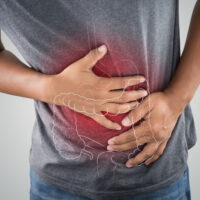Benefits of electrolyte drinks
Electrolyte drinks are a beverage that possess a high percentage of electrolytes, carbohydrates, and vitamins. These drinks are consumed at frequently by sports persons, athletes and gym enthusiasts as they help them recover electrolytes lost in their sweat. There are a variety of electrolyte drinks that can benefit you in different ways.

Electrolytes
Top 10 electrolyte drinks usually comprise of Sodium, Potassium, Calcium, and Magnesium the four essential electrolytes that we lose in sweat. These drinks have a significant percentage of electrolytes in them. Electrolytes play a pivotal role in providing you with the energy that your body functions on. When engaged in a strenuous activity, your body tends to perspire which results in you losing a bundle of electrolytes, hence tiring you. These drinks help in replenishing the electrolytes lost by your body, at a fast pace. Having an electrolyte drink before engaging in a workout or tiring activity is also advisable to help you perform better.
Carbohydrates
Along with electrolytes, sports and energy drinks also have a high count on the carbohydrates. Carbohydrates are the primary source of energy to the human body; they provide glucose after they break down during the digestion process. Sports drinks add the necessary glucose that your body loses after engaging in tedious activities. Most drinks mentioned in the top 10 electrolyte drinks list contain an average of 14g of carbohydrates.
Vitamins and Minerals
Electrolyte drinks comprise of B-complex vitamins like B-3, B-6, and B-12 on high levels. These vitamins are principal contributors to the energy metabolism and are associated with the following activities:
- Vitamin B-3 converts food into energy and helps in the digestion process
- Vitamin B-6 contributes to the red blood cells creation; these cells increase the oxygen in your blood stream
- Vitamin B-12 helps in maintaining a stable count of your red blood cells
Replacing lost fluids
Along with providing the body with vitamins, minerals, carbohydrates, and electrolytes these drinks also make up for the fluids that are lost by the body due to a tedious activity. At an average, a body requires about one and a half to four cups of water, depending upon the strong nature of the exercise or the tiring activity undertaken by the individual.





